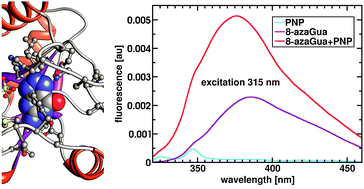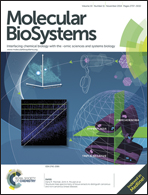8-Azapurines as isosteric purine fluorescent probes for nucleic acid and enzymatic research
Abstract
The 8-azapurines, and their 7-deaza and 9-deaza congeners, represent a unique class of isosteric (isomorphic) analogues of the natural purines, frequently capable of substituting for the latter in many biochemical processes. Particularly interesting is their propensity to exhibit pH-dependent room-temperature fluorescence in aqueous medium, and in non-polar media. We herein review the physico-chemical properties of this class of compounds, with particular emphasis on the fluorescence emission properties of their neutral and/or ionic species, which has led to their widespread use as fluorescent probes in enzymology, including enzymes involved in purine metabolism, agonists/antagonists of adenosine receptors, mechanisms of catalytic RNAs, RNA editing, etc. They are also exceptionally useful fluorescent probes for analytical and clinical applications in crude cell homogenates.


 Please wait while we load your content...
Please wait while we load your content...